March 11, 2024
Enhancing SSD Stability, Reliability, and Data Retention Durability through Silicon Motion's Robust OEM Verification Process
Efficient IT applications hinge on robust data storage systems, where the stability and reliability of storage devices directly impact crucial metrics like productivity and data security. Solid State Disks (SSDs) have become essential components for both PCs and Notebooks, as depicted in Figure 1. The SSD controllers serve as the core of the SSD storage device, functioning as its brain and nerves. Responsible for controlling access and transmission between the SSD and host, as well as managing blocks of flash memory, the SSD controller plays a pivotal role. As SSD storage devices move towards higher capacity and density, the quality of SSD controllers significantly influences their performance and lifespan, emphasizing the growing importance of stability and reliability.
To meet the ever-growing demand for increased storage capacity in limited form factors, modern SSD storage products now integrate QLC (Quad-Level Cell) NAND through advanced 3D stacking technology, surpassing 200 layers. This integration has made terabyte-level capacities commonplace in today's PCs and Notebooks, with storage devices now reaching up to 4TB, as illustrated in Figure 1.
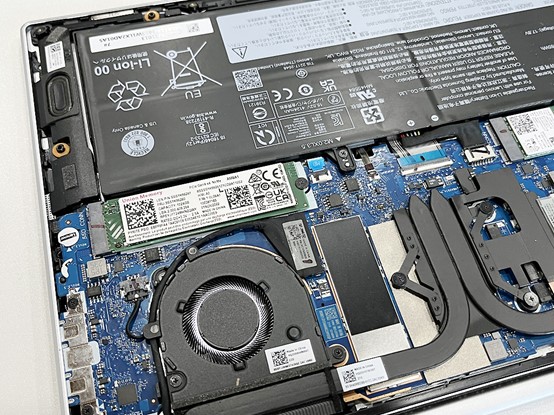
Figure 1: Solid State Disk (SSD) has become one of the core components of Notebooks.
While Solid State Disks (SSDs) have become integral components of Notebooks, the substantial rise in NAND flash storage density presents challenges such as heightened read/write interference and durability issues. Addressing these issues requires SSD controllers to provide precise and reliable access control, complemented by robust error correction mechanisms. Only through the implementation of these measures can SSD storage devices effectively meet the simultaneous requirements of performance, durability, and reliability.
Enhancing the Stability and Reliability of SSD Controllers through Rigorous Verification
To guarantee the optimal performance and steadfast stability of SSD storage devices across diverse application landscapes, Client SSD controllers incorporate essential features such as adaptability, compatibility, and low energy consumption, tailoring them to various application scenarios. Integrated within these controllers are multiple access management, acceleration, and data protection functions, fortified by robust security mechanisms. The pivotal challenge lies in ensuring the effective functionality of these designed features in real-world environments. This demands a meticulous and comprehensive verification process, providing a robust assurance of the SSD controller's quality and practical applicability.
Navigating the Challenges of Client SSD Controllers
Beyond the shared challenges encountered by SSD controllers, distinct application contexts impose additional demands on their functionality. SSD controllers, based on application environments, are classified into various types, such as enterprise, client, industrial, and automotive levels. Each is specifically designed for a particular operating environment like data centers, PC/notebook, industrial/embedded, and automotive applications. Notably, PC and notebook systems utilizing client SSD controllers operate within a relatively open application environment. This openness introduces intricate compatibility issues due to the diverse array of potential operating systems, BIOS, drivers, and PCIe peripheral devices. Consequently, numerous potential interaction issues emerge that complicate the challenge of ensuring stable operation of the SSD controller. Thus, a more thorough verification process is imperative to ensure the compatibility and stability of the SSD controller.
Comprehensive Verification for Quality Assurance in Client SSD Controllers
Confronted with the intricacies of client application environments, specialized verification testing processes tailored to these use cases become essential for ensuring the reliability and stability of SSD controllers.
As a global leader in SSD controllers, Silicon Motion not only offers flexible and customizable client SSD controller solutions for SSD modules and OEM manufacturers but also provides comprehensive design and production support services. This includes system functionality testing and compatibility verification for SSD controllers.
To meet the rigorous standards of PC OEM manufacturers, Silicon Motion employs a four-phase development, testing, and verification process covering the entire product lifespan to ensure the quality of SSD controllers. Commencing with the initial design and development phase, Silicon Motion initiates internal verification, progressing to OEM verification upon submission. Once certification and approval are secured from OEM manufacturers, ongoing maintenance services are provided before transitioning to the next generation of product development and design. Throughout these processes, the SSD controller undergoes a series of rigorous tests to validate its reliability and stability.
The internal verification phase at Silicon Motion involves conducting the following tests:
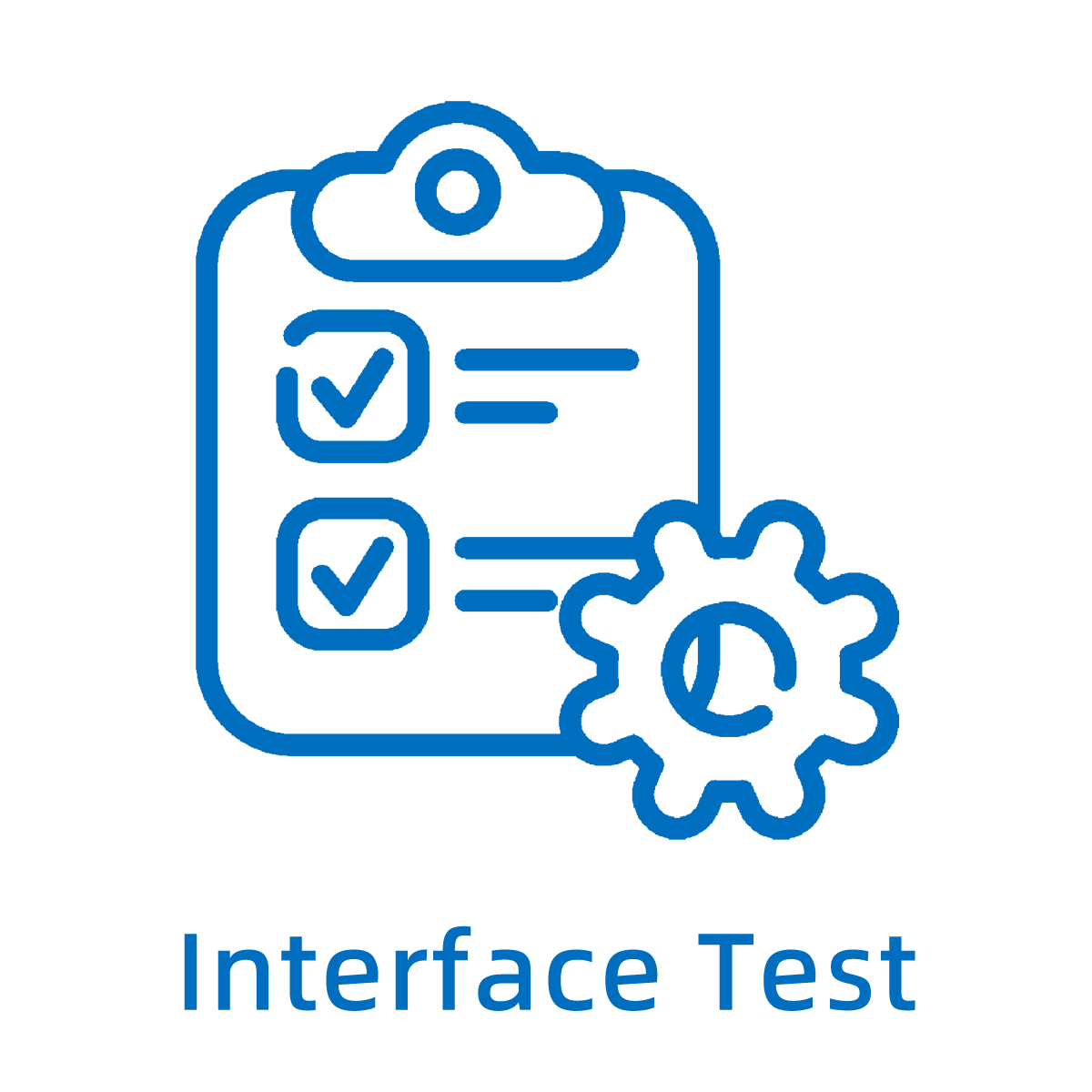
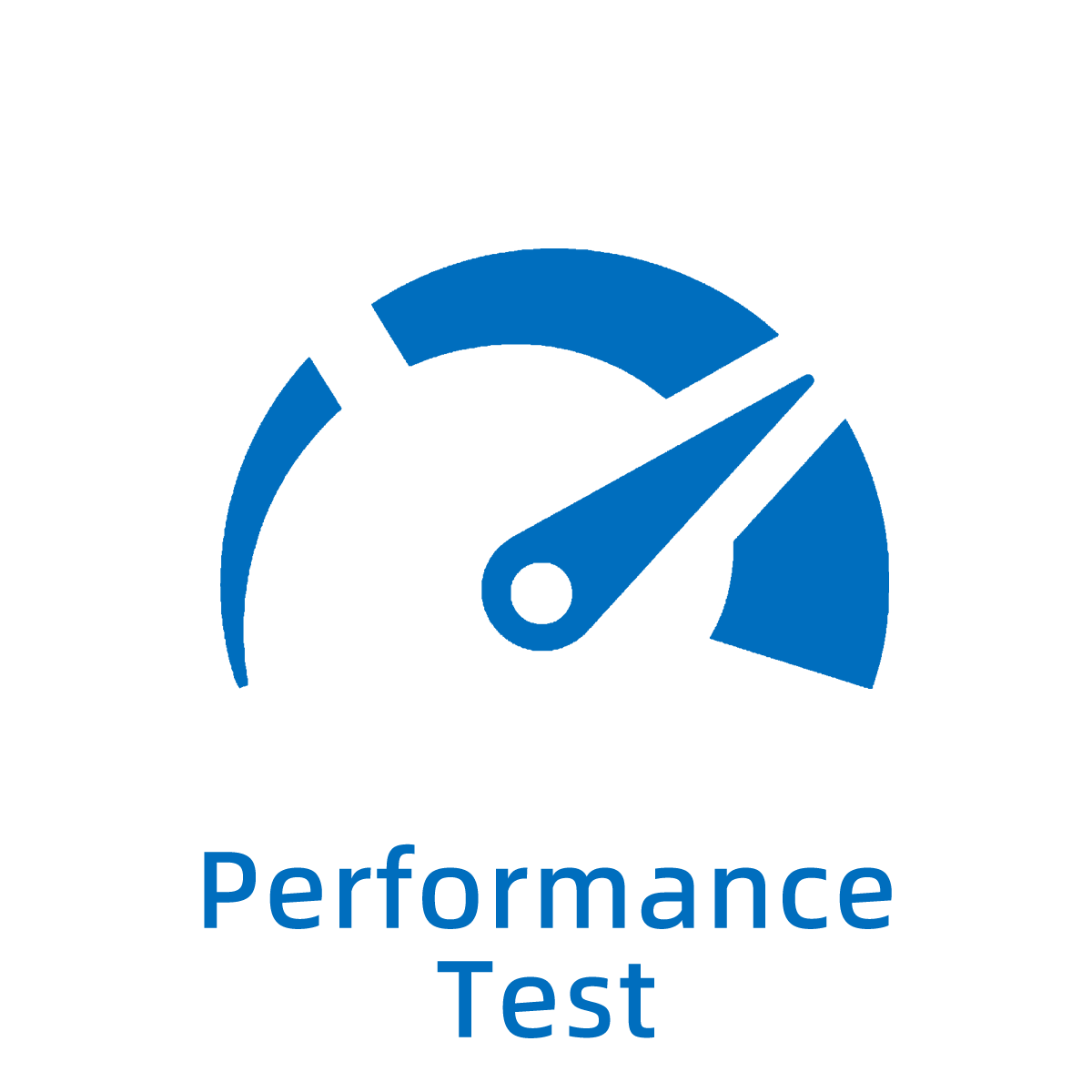
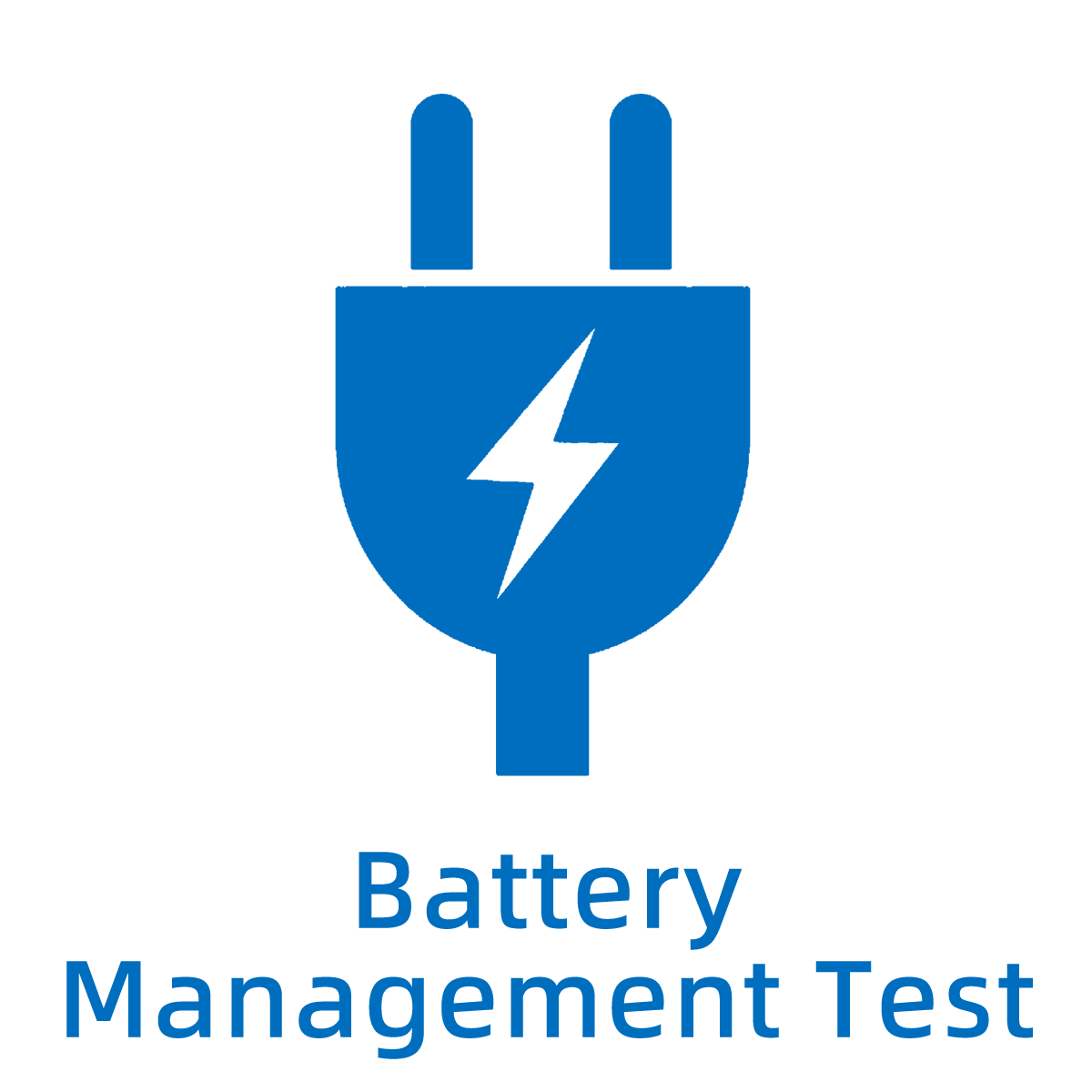
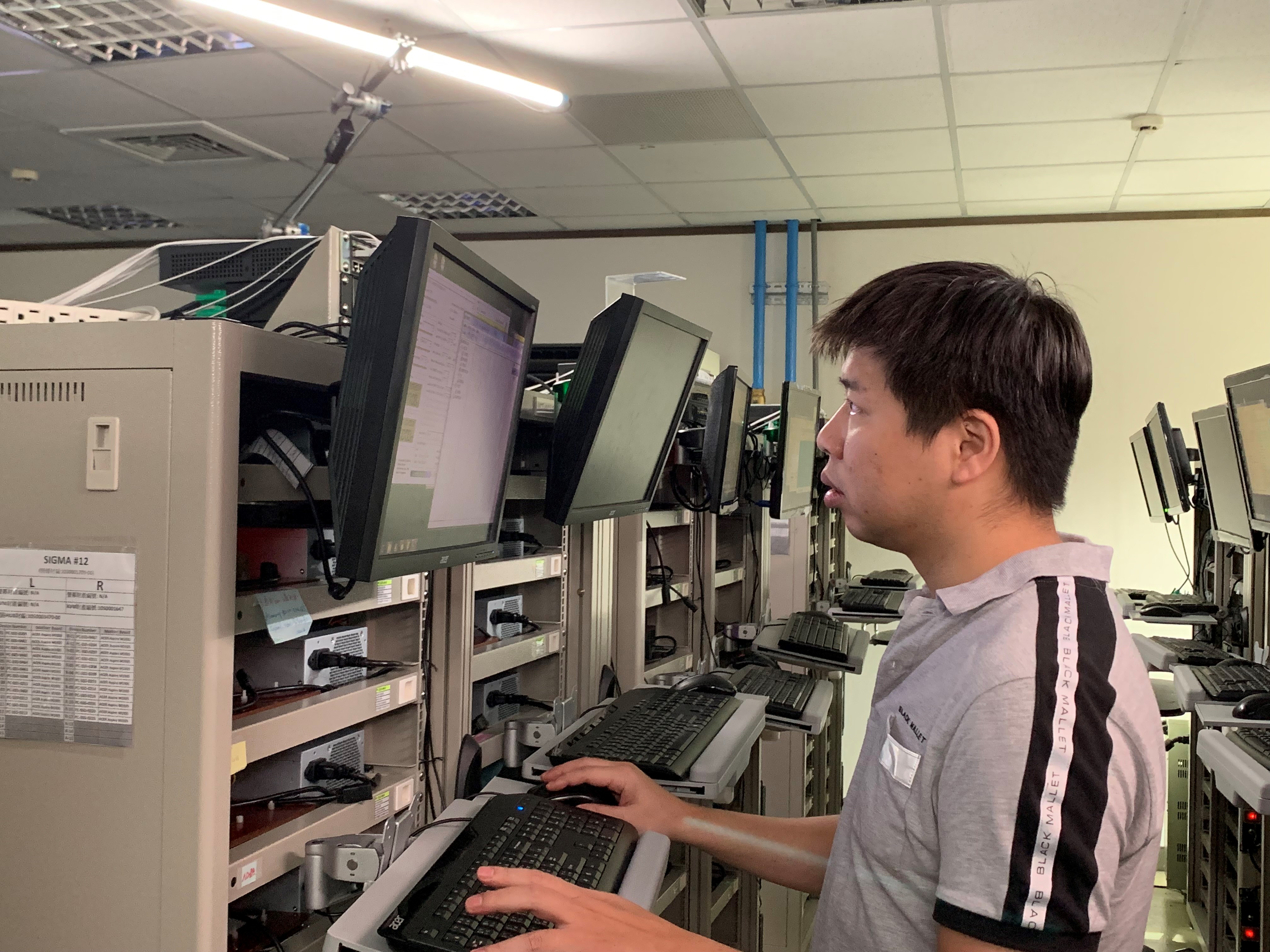
Figure 2: Power on-and-off/wake-up stress tests



During the OEM validation stage, the participating OEM manufacturers will conduct the following tests:
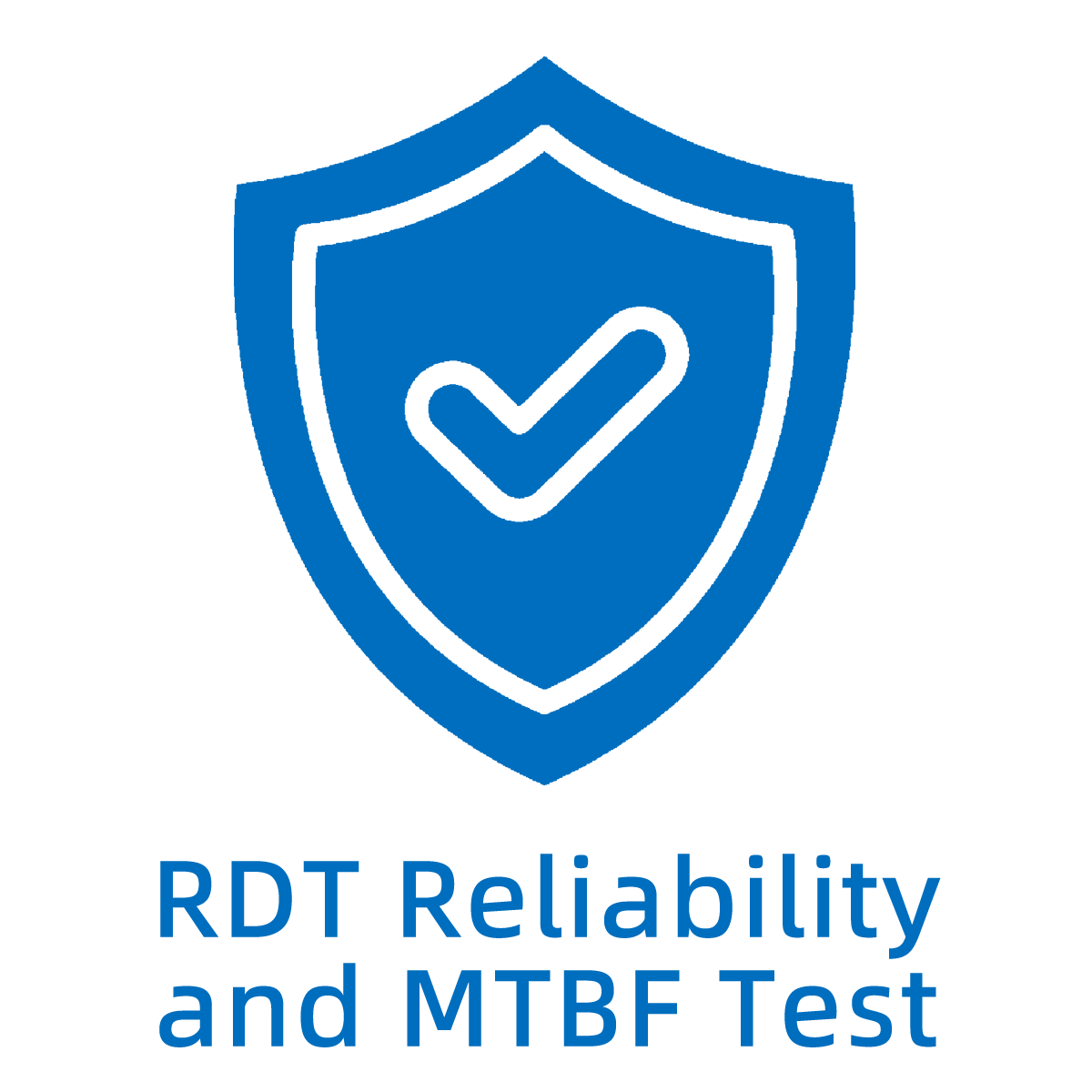

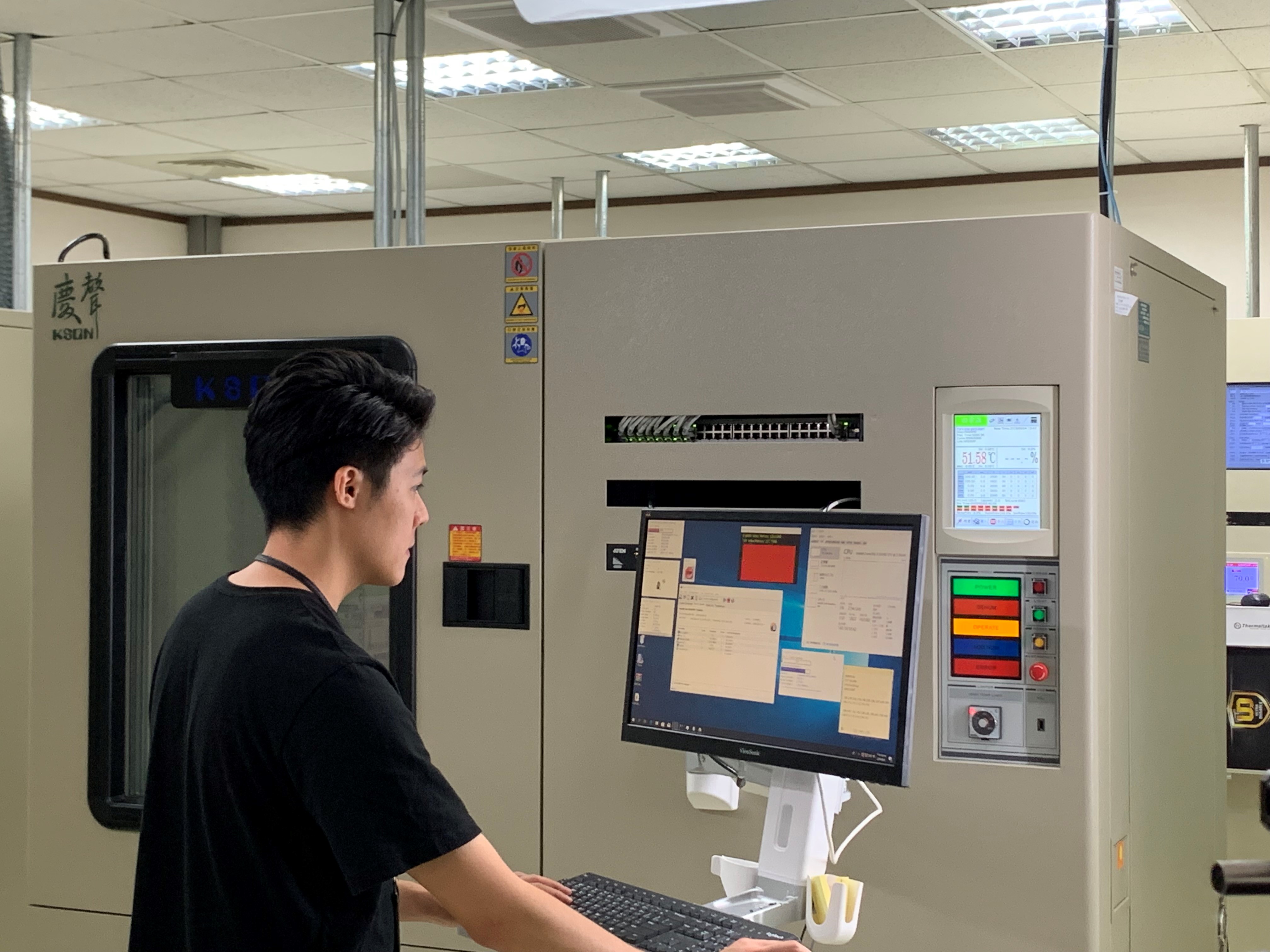
Figure 3: High and Low Temp. Stress Test with Chamber
Passing these tests provides an assurance of quality and confirms the SSD controllers can maintain their stability, reliability, performance, and security across a wide range of operating environments, including challenging conditions.
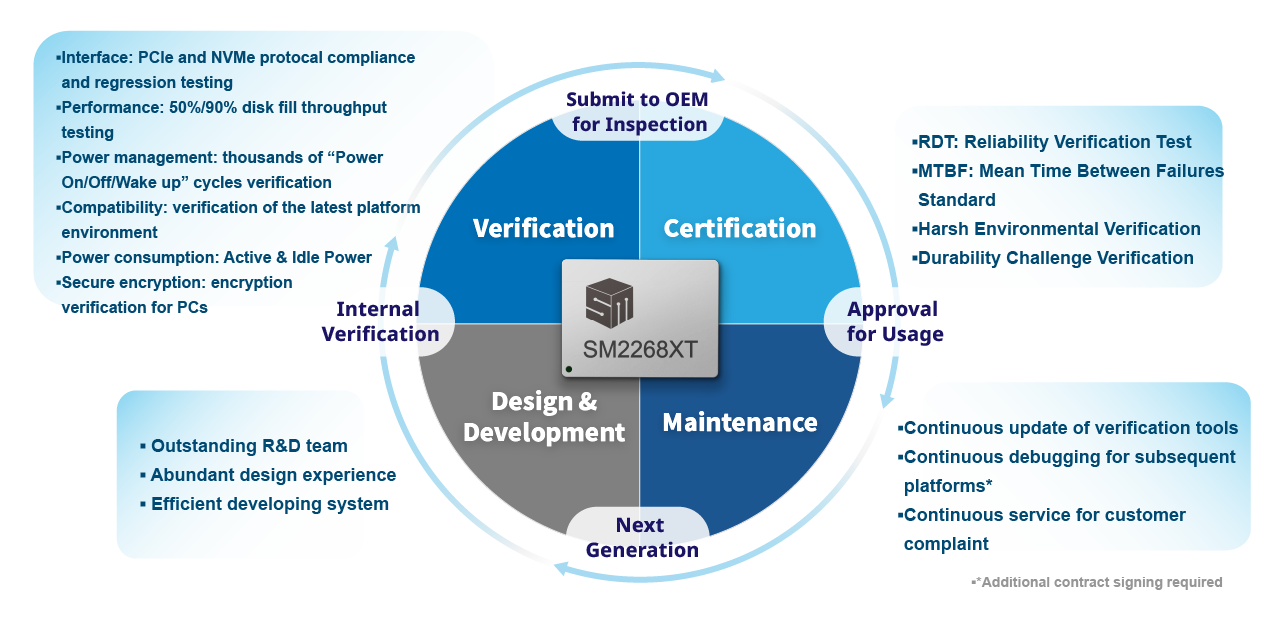
Silicon Motion's Achievements with Client SSD Controllers in OEM Qualification
The collaborative efforts with various PC OEM manufacturers confirm the quality of Silicon Motion's Client SSD controllers and the efficiency of the testing and verification procedures.
Silicon Motion commands a market share exceeding 30% in the Client SSD market, serving both OEM and branded SSD products.
Within the PC OEM SSD sector, Silicon Motion's Client SSD controllers have achieved widespread adoption by major NAND makers. These controllers are integrated into OEM SSDs and have been incorporated into PC and Notebook products from renowned brands.
Successfully navigating the OEM verification processes of these manufacturers provides comprehensive assurance regarding the stability, reliability, and data protection capabilities of SSD controllers.